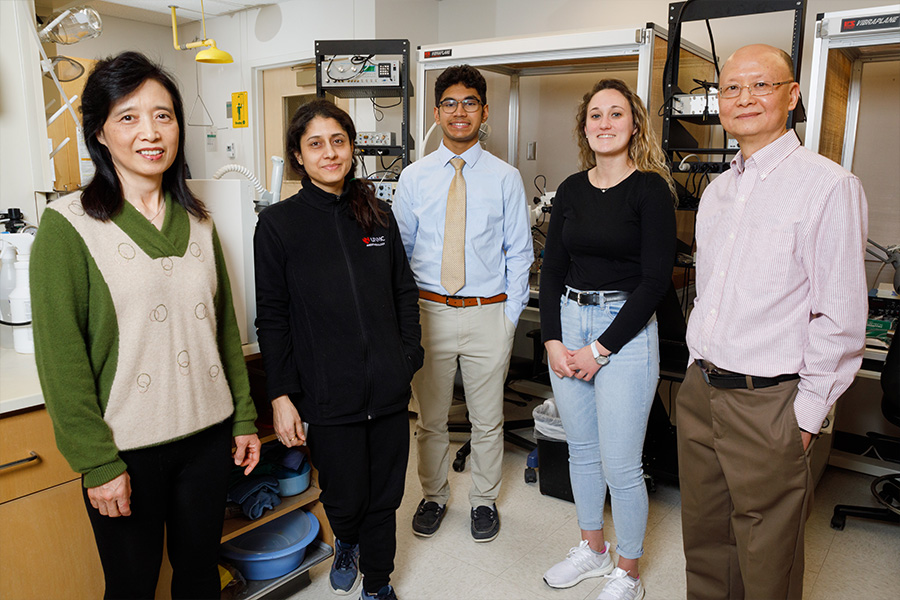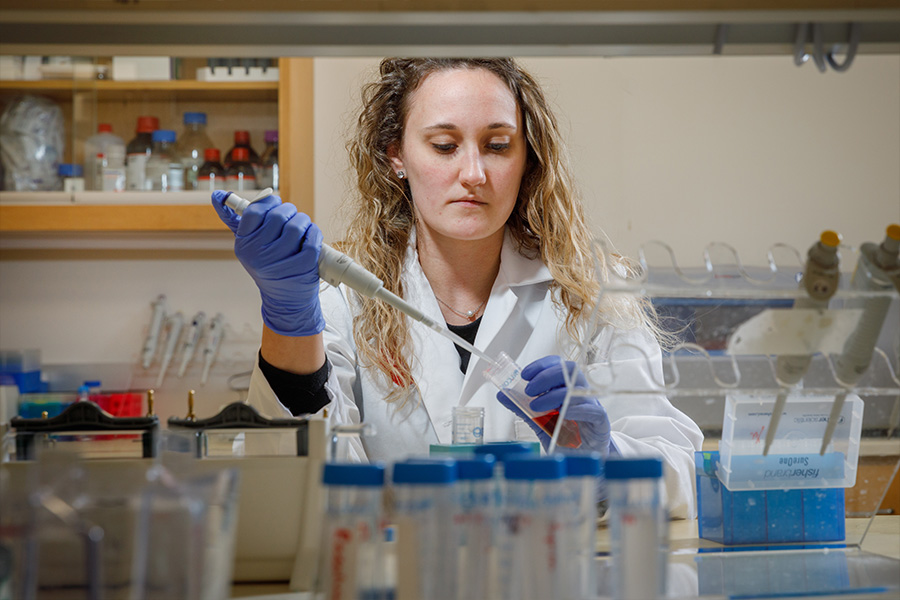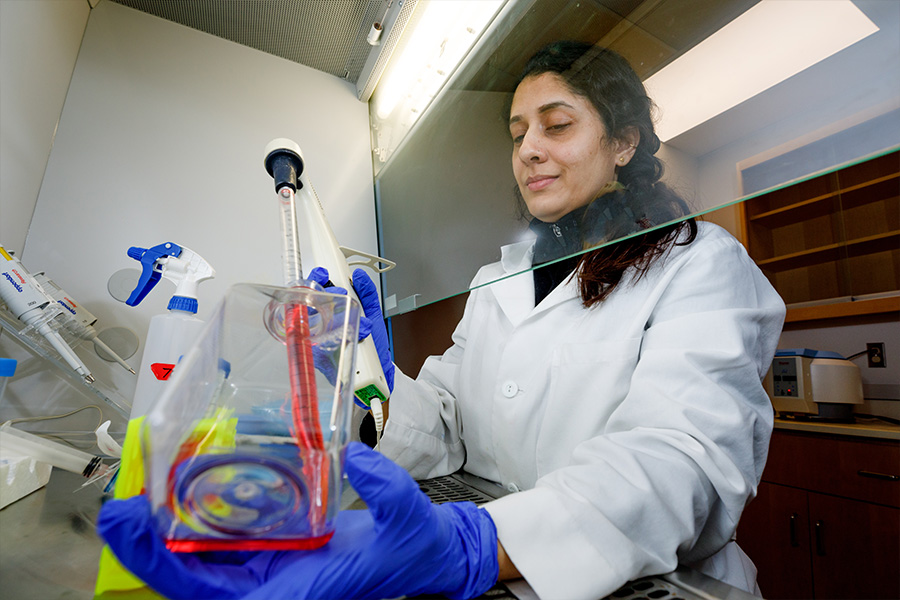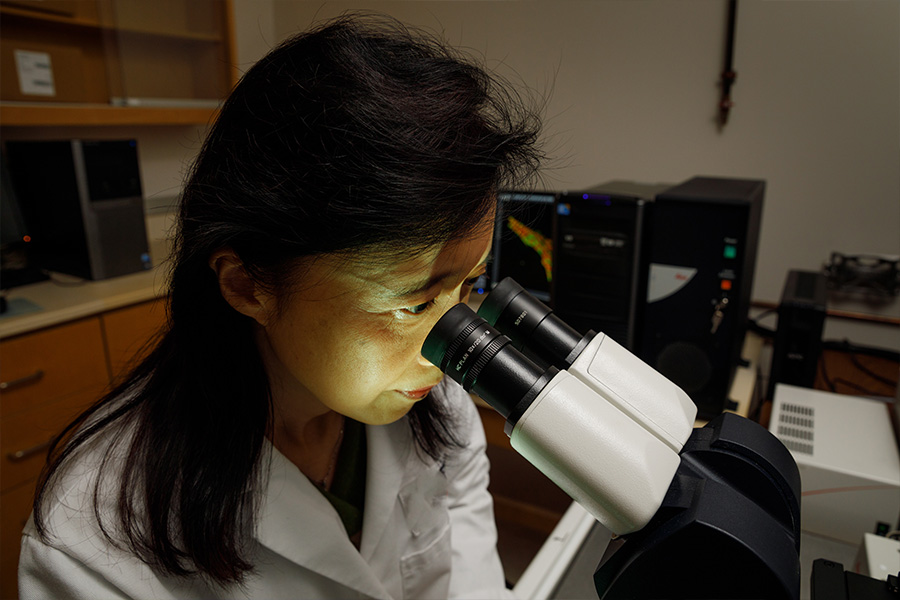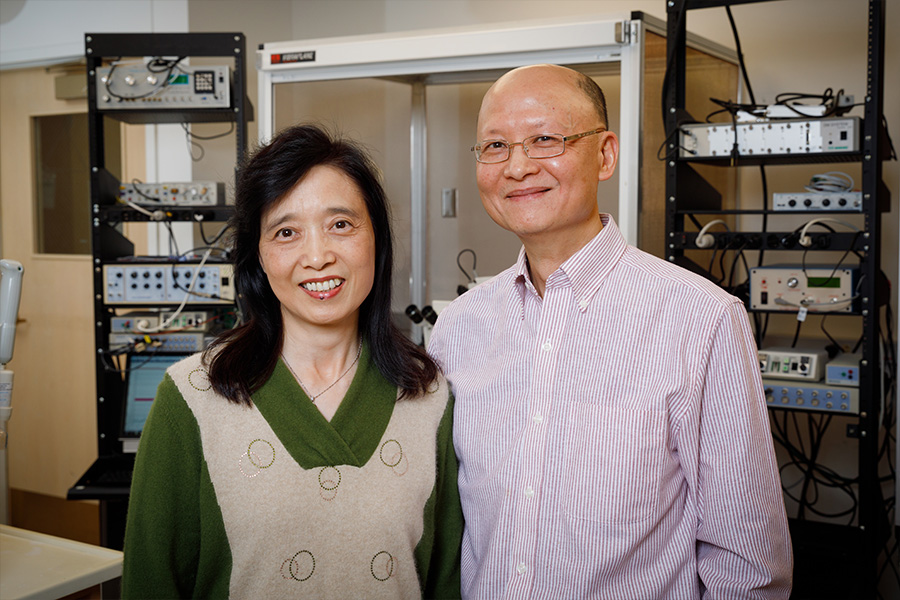Dr. Gao's Laboratory
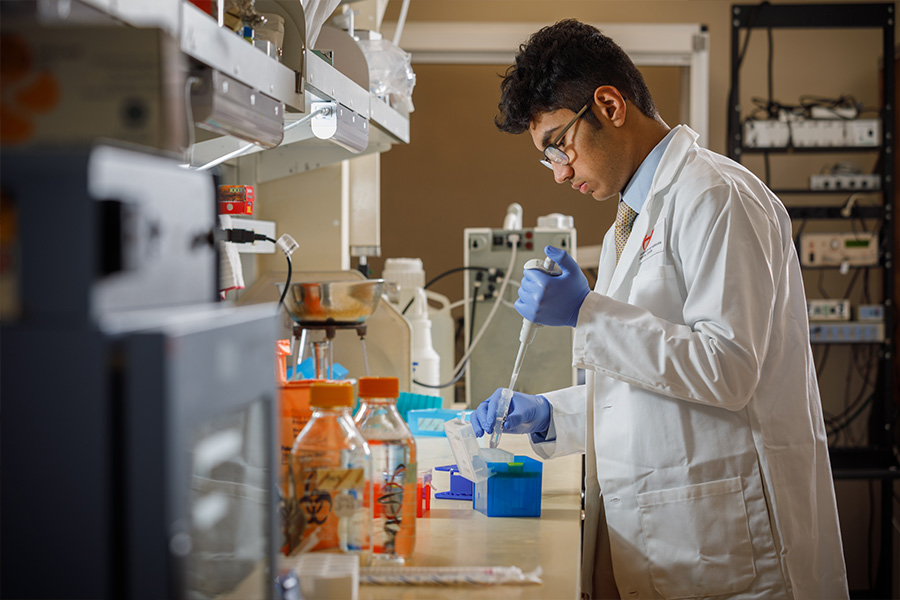
Physical activity is fundamental for the maintenance of human health. Regular exercise reduces cardiovascular risk and improves disease prognosis. Our laboratory aims to elucidate a novel mechanism underpinning exercise-evoked cardiovascular benefits involved in nuclear factor-erythroid factor 2-related factor 2 and extracellular vesicles in skeletal muscle.
We hypothesize that, during exercise, contracting muscle generates a mass of reactive oxygen species, which in turn activate Nrf2 to upregulate a large group of antioxidant enzymes and other cytoprotective proteins. These proteins are packaged into EVs and transported to the remote tissues/organs where antioxidant defenses are enhanced and protective processes occur.
Lab Personnel

Sarah Pribil
Graduate Research Assistant
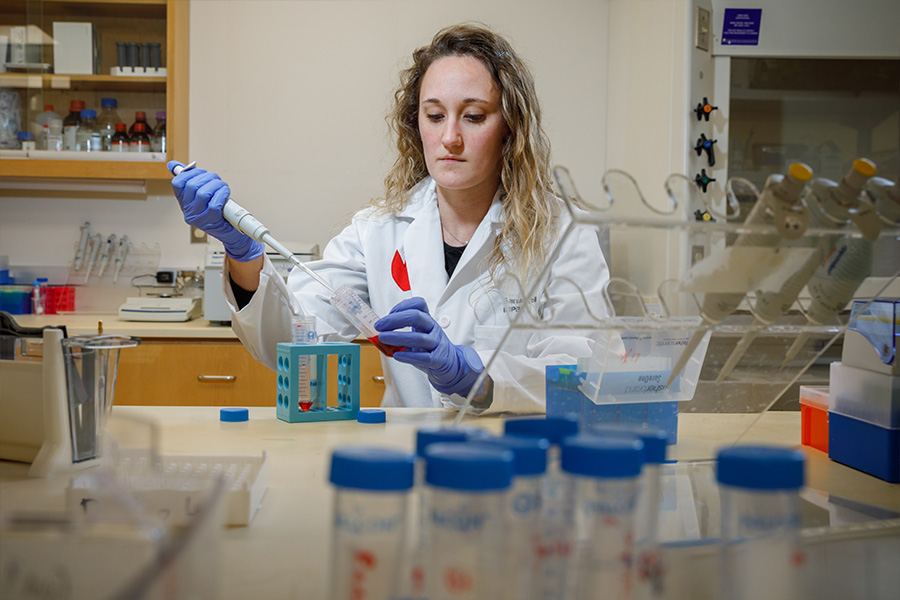
Lab Alumni
Anjali Bhat, PhD
Postdoctoral Research Associate
Ved Pendyala
Research Intern
Will Bruening
Research Intern (summer 2022)
Brenden Lofgren
Research Intern (summer 2022)
Li Yu, BS
Research Technologist I
- Cardiovascular physiology and pathophysiology: sympathetic activity, blood pressure regulation, hypertension, chronic heart failure, cardiac ischemia/reperfusion.
- Exercise beneficial influence on blood vessel, heart, and skeletal muscle: post-exercise hypotension, cardiac protection, muscle contractility, sarcopenia amelioration.
- Implication and significance of Nrf2 and extracellular vesicles (EVs) in exercise, skeletal muscle, cardiovascular function: Nrf2-maintained cellular redox homeostasis and antioxidant defenses; EV-mediated protein/miRNA transfer from skeletal muscle to blood vessel/heart/brainstem during exercise.
- Rodent animal models of cardiovascular diseases (Cardiac I/R, coronary artery ligation, hypertension);
- Skeletal muscle-specific transgenic mouse models (GPF reporter, Nrf2 KO/OE).
- Small animal surgeries for survival and terminal experiments (carotid and femoral arterial cannulation, telemetry unit implantation).
- Cardiovascular measurement in conscious and anesthesia conditions (BP, HR, ECG, RSNA, LVEDP).
- Biochemistry analyses of protein and nucleic acid (Western blot, ELISA, PCR, RT-PCR, quantitative PCR).
- Immunofluorescence staining and confocal microscopy (Leica TCS SPE-II).
- Isolation and analyses of extracellular vesicles from tissue, plasma, cells, and culture medium (Beckman Optima XPN Ultracentrifuge, ZetaView nanoparticle tracking analyzer).
- DHHS/NIH/NHLBI (R01HL160820) | January 2022 - December 2025 | Skeletal Muscle Nrf2: Exercise-Induced Cardiovascular Protection | $2,070,556
- New Frontiers in Medical Research Fund | July 2019 - June 2021 | Chronic Exercise-Induced Skeletal Muscle Functional and Proteomic Adaptation: Role of Nrf2/Keap1 | University of Nebraska Medical Center, College of Medicine; Frances E. Lageschulte and Evelyn B. Weese | $55,000
- DHHS/NIH/NHLBI (R01HL153176) (PI-Dr. Irving Zucker) | April 2021 - March 2025 | Nrf2 regulation of oxidative stress in heart failure and extra vesicular communication | Role: Co-Investigator for 3.00 Calendar Months
- DHHS/NIH/NHLBI (R01HL126796) (PI-Dr. Irving Zucker) | January 2020 - December 2023 | Cardiac afferents and renal function in heart failure | Role: Co-Investigator for 1.80 Calendar Months
Collaborators
Hanjun Wang, MD
Department of Anesthesiology, UNMC
Irving H. Zucker, PhD
Theodore F. Hubbard Professor of Cardiovascular Research
Dept. of Cellular & Integrative Physiology, UNMC
